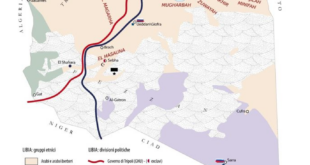 CAIRO (Reuters) – Egyptian workers cut through a railway embankment on Sunday to bring heavy earth-moving equipment to the site of a rock fall which killed at least 31 people in a Cairo shantytown.
CAIRO (Reuters) – Egyptian workers cut through a railway embankment on Sunday to bring heavy earth-moving equipment to the site of a rock fall which killed at least 31 people in a Cairo shantytown.
At the scene of Saturday’s disaster, rescue workers attacked the roof of one collapsed building with sledgehammers in an attempt to reach the floor below.
Residents of one street moved furniture into the street and packed up other belongings on instructions from the authorities, who they said plan to demolish the building and others nearby.
But no heavy equipment such as bulldozers, loaders or cranes had reached the site in eastern Cairo by Sunday afternoon, about 30 hours after giant rocks peeled off the nearby cliff and tumbled down on to the houses and people below.
Police sources gave conflicting accounts of the number of bodies recovered from under the rocks. Some said 39, seven more than the death toll cited on Saturday. Others said 33 while the state news agency MENA said 31.
Some of the rocks weigh more than 200 tons and it could take days to break them up and lift them out of the way.
The government set up a tented camp in a public garden several miles (km) away for the survivors from about 100 families whose houses were destroyed or damaged.
Other residents said they had spent the night in the street and that the government had not provided food or shelter.
REFUSED TO MOVE
The cliff, part of the Muqattam Hills which flank the old city of Cairo on the eastern side, fell on one of the poor working-class areas which have sprung up around Cairo as the city grew in the last few decades.
Rockfalls have been frequent in the area and the authorities had moved some people to new houses elsewhere.
Egyptian media said some people refused to move on the grounds that the alternative houses were too far away. But some residents said that they did not believe the new houses existed or thought that one needed to pay a bribe to obtain one.
“We only saw these homes on television. Where are they?” said Nimah Abdel Tawab, an elderly woman.
“The people with money took these homes. Everything in our country is for money,” added Mohamed Hassan.
The disaster was the latest in a series of events which have damaged the reputation of an Egyptian government which has been in office with few changes since 2004.
The fire brigade reacted slowly last month when fire broke out in the offices of the upper house of parliament. The fire burned for more than 12 hours and gutted the historic building.
Then a prominent member of the ruling party and one of Egypt’s wealthiest businessman, Hesham Talaat Mustafa, was charged last month as an accessory to the killing of Lebanese singer Suzanne Tamim in Dubai in July.
In July a Cairo court acquitted a parliamentarian from the ruling party of manslaughter over the death of more than 1,000 ferry passengers who drowned in the Red Sea in 2006. The verdict has been widely criticized.
 Eurasia Press & News
Eurasia Press & News

